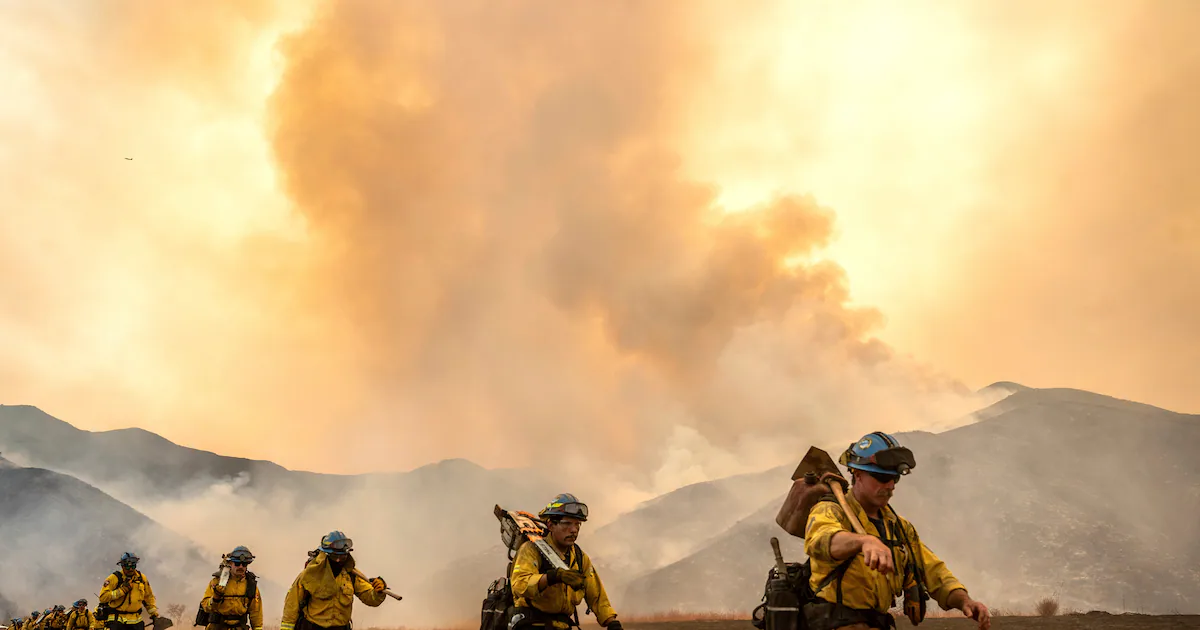Copyright Salt Lake City Deseret News

Oftentimes you’ll see firefighters driving around in a big fire engine, responding to medical emergencies, fires or whatever a community needs. They’re the Swiss Army knife of emergency responders. But when it comes to wildland firefighters, the men and women protecting communities from wildfire, the public knows less. You may have heard of hotshot crews and smokejumpers, but wildland firefighters come in many other forms: some rappel from helicopters, some arrive in engines that pump water. But regardless of how they arrive, they all depend on one thing: support back home. Take a federal hotshot crew driving across the West. They travel with two big buggies for their 20-plus people and another truck to haul gear. They’re often gone for weeks or months protecting towns and watersheds from devastating wildfires. But behind every crew is a web of support that keeps them going. If you watch the evening news, you see incident command posts — big tents, maps and logistics centers. Hundreds of people keep those camps running, many of whom aren’t firefighters by title. They’re administrators, finance officers and specialists. They can be gone for months, a year, making sure crews in the field have what they need. That support system is stretched thin thanks to recent chaos in Washington. If the government refuses to compromise on a budget and prolongs a shutdown, that support system collapses. And when it does, our wildfire response will too. In February of this year, the Trump administration initiated massive layoffs of federal workers. We were told that no wildland firefighters were being fired. That wasn’t exactly accurate. The federal land management agencies where wildland firefighters are staffed have personnel who are dedicated firefighters. But they also rely on others whose “day jobs” are in recreation, biology or timber management — people who step in when the crew is sick or needs time off. They’re qualified and experienced, but firefighting isn’t their only role. When those positions were cut in the last purge, it meant fewer boots on the ground. Using a chainsaw where a scalpel is needed makes for a dangerous and potentially deadly procedure. That same chainsaw is now doing its work on the federal government’s ability to respond to wildland fires. The government shutdown risks making matters worse. It isn’t just the finance clerks and dispatchers who are sent home — it’s the people who double as firefighters when crews are short-staffed. The folks who leave their regular jobs to join incident management teams, running the command posts. They’re the ones mapping, tracking time sheets, keeping records straight and holding the operation together while others are on the fire line. They may be hundreds of miles away from flames, but without them, those engines, hotshot buggies and helicopters can’t stay in the fight. Wildfires are only growing hotter, longer and more destructive. This year has already seen some of the most destructive wildfires on record, from tens of thousands of homes destroyed in Los Angeles to losing an iconic lodge at the edge of the Grand Canyon. Even smaller blazes, like those recently in Joshua Tree and Zion National Parks, highlight the breakdown in public information and support, where a lack of staffing left the public waiting days for vital updates from the National Park Service. Our firefighters have stepped up to fight each of these battles. Crews can’t sit idle, waiting for the administration to strike a deal. But with paychecks stopped, parts undeliverable and logistics grinding to a halt, even the bravest firefighters will be stranded out there without backup. We’ve already seen how this plays out. An engine captain recently told me about breaking down in northern Nevada after returning from a fire. His crew sat for a week in a small town, waiting for administrative support to approve and order parts. That was during normal government operations. Now with furloughed support staff, that delay could multiply across crews. So the next time you hear the whine of a chainsaw in Washington furloughing government workers and someone tells you firefighters won’t be affected, don’t believe it. Because when the support system falls, the fire line falls with it.



